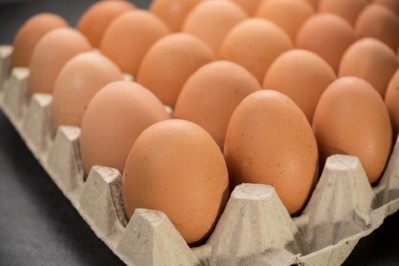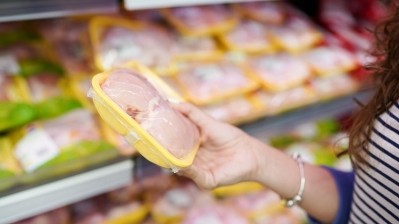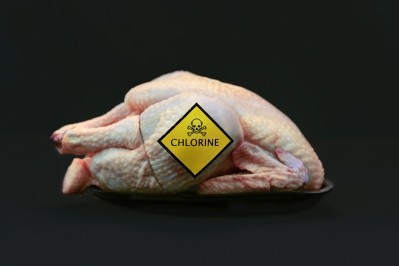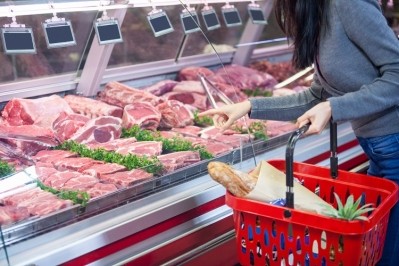Chicken welfare up to scratch? Retail majors commit to higher standards
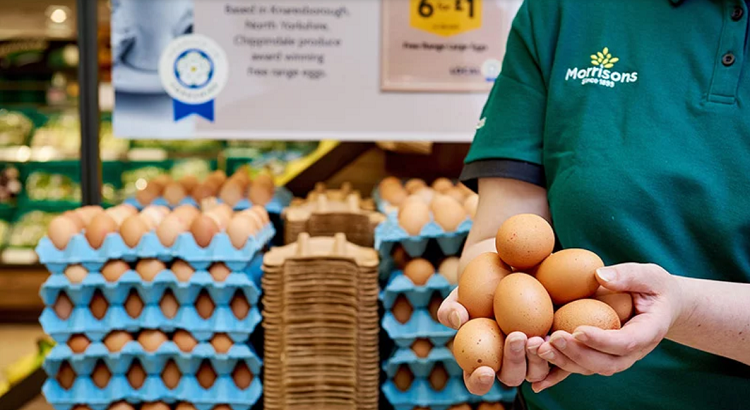
Poultry is the second most produced and consumed meat in the European Union, after pig meat.
Approximately 7.4bn chickens are slaughtered for meat per year across the bloc, producing more than 12m tonnes of chicken meat.
Chicken eggs are also big business. At last count, there were an estimated 363 million laying eggs in Europe, which produce 6.9m tonnes of eggs or egg product per year. Average egg consumption is calculated at 12kg per capita annually.
Momentum has slowly been building to address animal welfare standards in both these sectors, through EU regulation, ingredient supplier pledges, and most recently, commitments from supermarket retailers.
Morrisons ‘first major supermarket’ in UK to go free range
The European Commission banned battery-caged eggs under Directive 1999/74/EC in 2012.
The legislation stipulates that hens must have at least 750m² of cage per hen or live in an alternative system where stocking density does not exceed nine laying hens per m² of usable area.
However, for some food businesses, the Directive is not up to scratch. Finnish food company Fazer Group, for example, has pledged to eliminate cage eggs from its supply chain by 2024. The commitment concerns the company’s operations in Finland, Sweden, Norway, Denmark, Latvia and Lithuania.
In the UK, Morrisons has also taken the plunge. The retailer said this week it is the first major supermarket to do so, ahead of Tesco, Sainsbury’s, Asda, Aldi, and Lidl.
This means that all Morrisons eggs will come from hens that have outdoor access for at least eight hours each day. They will also have nest boxes and ‘wide perches’ and ‘spaces for scratching and dust bathing’.
Morrisons has doubled the number of free-range farmers that supply its egg packing business and said the decision calls for an extra 334,000 free roaming chickens in the egg industry.
“Improving animal welfare is very important to customers and it’s important to us. We source our eggs directly from farms and have worked hard to help them all move to free range,” said Morrisons Egg Buyer Robert Hofmann.
Director of food business at animal welfare charity Compassion in World Farming, Dr Tracey Jones, welcomed the move. “It’s great to see Morrisons achieving their commitment to be 100% free range on shell eggs ahead of their 2022 target. Momentum on ending the use of cages for laying hens is growing and Morrisons are leading the way.”
Morrisons has also pledged to remove cage eggs used in processed and ingredient foods by 2025.
Carrefour France joins M&S, Waitrose in European Chicken Commitment
On the continent, food companies are also driving towards higher welfare standards for broiler chickens.
The European Chicken Commitment (ECC) – which requires companies to switch to a ‘more robust and active’ breed of chicken and provide them with more space and ‘stimulating environment – has been signed by over 100 businesses.
Carrefour France is the most recent food company to commit to the ECC, joining M&S, Waitrose, KFC, Casual Dining Group, Unilever, Compass Group, and Danone.
“It’s no small task meeting the requirements of the ECC, and it’s going to take considerable collective action from all stakeholders in the supply chain including suppliers, retailers, manufacturers and food service companies, as well as the assurance schemes, industry bodies and ultimately the consumer, to achieve market success,” noted Compassion in World Farming’s Dr Jones.
In the UK, M&S was the first retailer to pledge support for the ECC in January 2018. This year, M&S launched a ‘higher welfare’ whole chicken and chicken portions range into two-third of its stores. M&S plans to rollout the ECC-complaint range into all stores by 2026.
Dr Jones said the charity applauds M&S for its early commitment to the cause. “While commitments are an important starting point for companies, signalling their need for a higher welfare standard from their suppliers, paced and sustained transition are essential if this better chicken is to become a commercial reality, which is why the M&S product on shelf today is so important.”
According to Dr Jones, consumers should expect to pay more for higher welfare chicken, due to the additional cost of production. Marketing of the product should therefore be a high priority.
“Bringing consumers on board with the new product is going to be key. As more companies start selling this higher welfare chicken, compelling consumer messaging and promotion with a strong visual identity are going to be essential to build consumer loyalty and maintain their purchasing choice.
“The industry is starting to work on this and it may take time to develop an agreed, joined-up approach. However, it is the right thing to do for animal welfare and for those consumers who expect higher welfare standards and want to make an informed choice.”
The European Chicken Commitment (ECC) Criteria
By 2026, ECC members are required to meet the following requirements for 100% of the fresh, frozen, and processed chicken in their supply chains:
- Comply with all EU animal welfare laws and regulations, regardless of the country of production.
- Implement a maximum stocking density of 30kg/m2 or less. Thinning is discouraged and if practiced, must be limited to one thin per flock.
- Adopt breeds that demonstrate higher welfare outcomes: either the following breeds, Hubbard Norfolk Black, JA757, 787, 957, or 987, Rambler Ranger, Ranger Classic, and Ranger Gold, or others that meet the criteria of the RSPCA Broiler Breed Welfare Assessment Protocol.
- Adopt controlled atmospheric stunning using inert gas or multi-phase systems, or effective electrical stunning without live inversion.
- Demonstrate compliance with the above standards via third-party auditing and annual public reporting on progress towards this commitment.
- Meet improved environmental standards including:
- At least 50 lux of light, including natural light.
- At least two metres of usable perch space, and two pecking substrates, per 1,000 birds.
- On air quality, the maximum requirements of Annex 2.3 of the EU broiler directive, regardless of stocking density.
- No cages or multi-tier systems.
